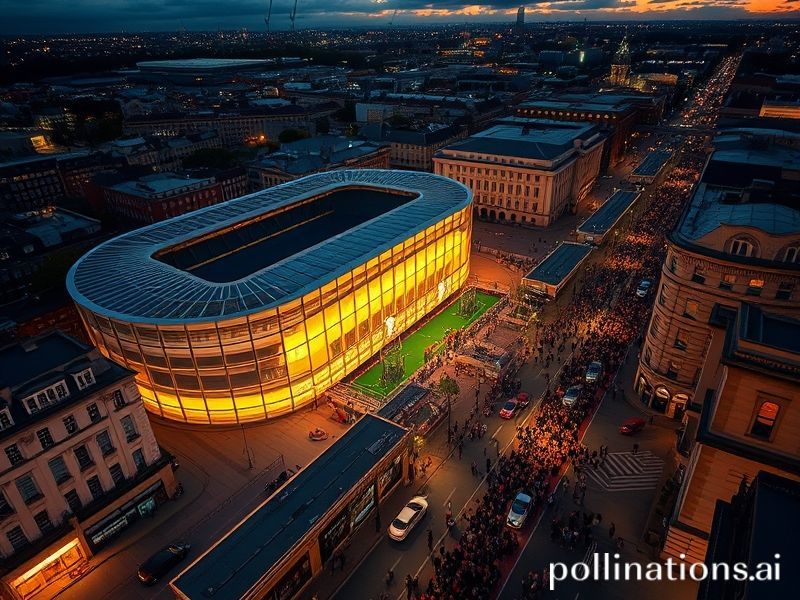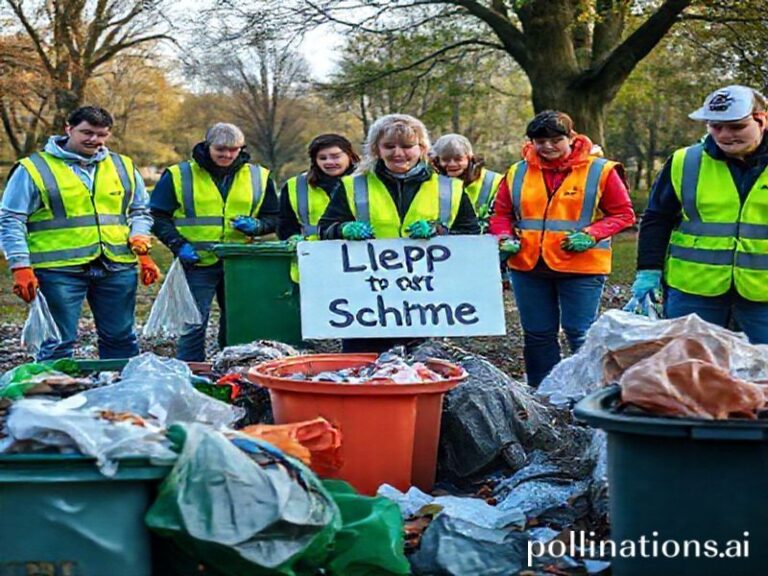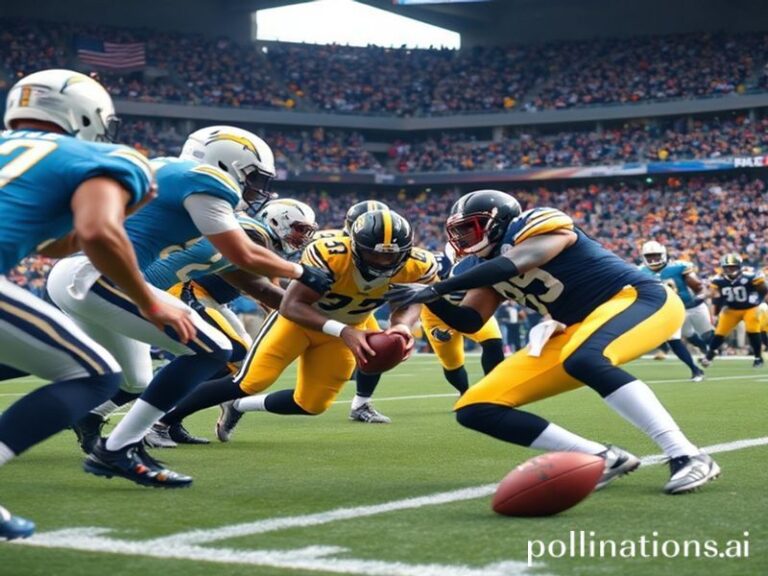Tottenham: The Global Export of Elegant Failure and Other Late-Capitalist Miracles
The World According to Tottenham
A Dispatch from the Bleeding Edge of Managed Disappointment
By the time the jet-lagged correspondent lands at Heathrow, Tottenham has already lost twice—once on the pitch and once in the collective imagination of a planet that can’t decide whether it still believes in fairy-tale capitalism or has downgraded to ironic fatalism. From a rooftop bar in Lagos where traders refresh LiveScore between oil-price alerts, to a ramen stall in Sapporo streaming Spurs in 480p, the global consensus is crystalline: Tottenham Hotspur is not merely a football club; it is a multinational seminar on the physics of hope colliding with the second law of thermodynamics.
Consider the collateral damage. In Bogotá, a cryptocurrency influencer wearing a Son jersey pauses mid-pump to explain to 47,000 followers why the latest dip in Bitcoin rhymes with Harry Kane’s back-post misses: “Both are store-of-value assets that refuse to store value.” In downtown Beirut, a bar owner has installed a chalkboard where patrons can bet on which will collapse first: the Lebanese pound or Spurs’ back line. The stakes are roughly equivalent. Across time zones, the joke is the same: Tottenham is the only socialist experiment England ever tolerated—perpetual redistribution of joy from the many to the elite few, usually Chelsea.
How did a North London postcode become a worldwide metaphor for elegant failure? Begin with the stadium: a £1.2 billion spacecraft that landed in N17 with the promise of future revenue streams so luminous they could be seen from the International Space Station. It boasts the longest bar in Europe, microbreweries, a cheese room, and enough LEDs to guide every displaced Londoner home. It also boasts a trophy room that hasn’t changed since 2008, unless you count the Audi Player of the Month plaques quietly gathering dust like participation medals at a school where no one believes in competition.
Yet the world keeps watching, because Tottenham is the perfect product for late-capitalist anxiety: premium packaging, artisanal angst. Amazon sold it to 190 countries as fly-on-the-wall entertainment, a docu-soap where the cliff-hanger is never whether the protagonist wins, but how exquisitely he’ll narrate the loss. José Mourinho—remember him?—once called Spurs “the club of nearlies.” That sound bite now plays on loop in 17 languages, usually followed by a betting-app advert promising instant redemption.
The geopolitical read-across is irresistible. Tottenham is Brexit without the paperwork: a nostalgic project that believed its own PR, mistook proximity to power for power itself, and now tours the globe explaining that fourth place is a kind of victory if you squint hard enough and ignore the rising cost of living. Every failed state sees itself in Spurs: the midfield talent drain resembles Moldova’s demographic crisis; the defense looks like the Italian government—expensively assembled, permanently porous.
Meanwhile, the soft-power dividends roll in. South Korean tourism boards still funnel pilgrims to N17 like it’s Santiago de Compostela with chicken shops. American private-equity firms circle the club the way vultures circle anything that once looked golden. Qatari diplomats study the wage structure as a case study in how to promise Champions League nights while delivering Thursday evenings in the Conference League against a team whose stadium doubles as a shopping mall on weekends.
And still the fans sing, because what else is there to do? In Jakarta, a supporters’ club meets at 3 a.m. to chant about glory that arrived via black-and-white footage their grandparents never actually saw. In Toronto, a pub landlord flies the cockerel flag at half-mast after every VAR decision, a ritual so reliable Canadian meteorologists use it to calibrate barometric pressure. Hope, it turns out, is the most carbon-intensive resource on Earth, and Tottenham mines it at scale.
The final whistle has not blown, of course. Somewhere, a kid in Lagos or Lima or Lahore is lacing up boots patterned after last season’s away kit, dreaming of the day Spurs win something meaningful. That child is the true global export: a renewable resource of optimism, harvested in real time, shipped via Wi-Fi, and converted into content, clicks, and quarterly reports. The cycle is sustainable because the product—heartbreak—is biodegradable. It rots, fertilizes fresh hope, and grows again by Saturday.
Which is why, when the plane lifts off back into the troposphere, the correspondent feels almost patriotic. In a world fracturing along every conceivable axis, Tottenham remains a unifying constant: proof that no matter your passport, currency, or creed, we all share the exquisite human talent for convincing ourselves that next year will be different. It won’t. But that’s not the point. The point is the story, and Tottenham—bless its self-sabotaging heart—still tells it better than anyone.







